The cost of stopping the Russian bear now is high
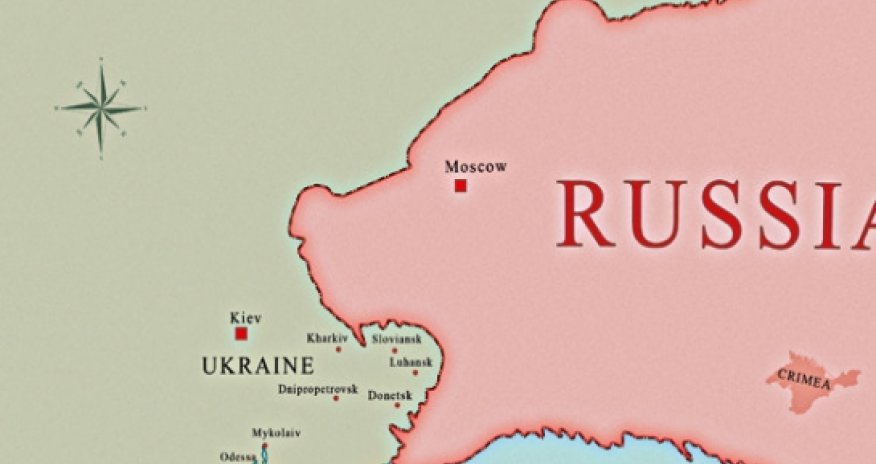
FIRST Vladimir Putin mauled Georgia, but the world forgave him—because Russia was too important to be cut adrift. Then he gobbled up Crimea, but the world accepted it—because Crimea should have been Russian all along. Now he has infiltrated eastern Ukraine, but the world is hesitating—because infiltration is not quite invasion. But if the West does not face up to Mr Putin now, it may find him at its door.The storming of police stations in eastern Ukraine over the weekend by pro-Russian protesters (see article) is a clever move, for it has put the interim government in Kiev in an impossible position. Mr Putin has warned that Ukraine is on the brink of civil war. If the country’s government fails to take control, it will open itself to charges that it cannot keep order within its own borders. But its soldiers are poorly trained, so in using force (operations were under way as The Economist went to press) it risks escalation and bloodshed. Either way, it loses.The West has seen Russia brush off its threats and warnings. It looks feeble and divided. Yet, after the destabilisation of eastern Ukraine, even doves should grasp that the best chance of stability lies in standing up to Mr Putin, because firmness today is the way to avoid confrontation later.Red lines and green menRussia insists that it has played no part in the seizure of towns such as Sloviansk and Gorlivka. This is implausible. The attacks were co-ordinated, in strategically useful places that had seen few protests. Just as in Crimea six weeks ago, troops in unmarked uniforms and with Russian weapons carried out the initial assaults. Russian agents have turned up in custody and in reporters’ notebooks, organising the protests and, some say, paying for them. Russia has been meddling in eastern Ukraine for weeks, occasionally with results from the pages of Gogol. On April 6th “local people” stormed what they thought was the regional administrative headquarters in Kharkiv only to find that they had taken control of the opera house.Russian diplomats counter that they cannot be behind what is going on, because instability in eastern Ukraine is not in Russia’s interests. True, normal countries benefit from peace and prosperity next door. However, mindful of its own claim to power and the outlook for Russia’s stagnant economy, the Kremlin has much to fear from the pro-European demonstrations that toppled Ukraine’s president, Viktor Yanukovych. It appears determined to see the new Ukraine fail.There are several reasons why Russia might want to destabilise Ukraine. One motive could be to stop the presidential elections, due on May 25th. That would deprive Ukraine of the elected leadership it needs to restore order. A second could be to justify overt Russian intervention. Mr Putin is capable of exploiting either anarchy or bloodshed as a pretext to move his troops, camped in large numbers across the border, into Ukraine as “peacekeepers”. But occupation would come at a heavy cost (see article), so the Kremlin might prefer a third result: civil conflict that destroys the authority of Kiev, followed by a parallel government for eastern Ukraine. There is nothing wrong with federalism in principle, but this would be a formula for Russian domination.Some would leap at such a deal as the least bad on offer. Ukrainian politicians and oligarchs might be happy, because they could go on stealing. The West could take comfort that the Russians had not actually invaded. But it would be a terrible outcome for the Ukrainian people, especially those who risked their lives in the Maidan for a chance of something better. For the West to accept such a result with relief would constitute a grave misreading of Russia’s mischief-making.Mr Putin has used the Ukrainian crisis to establish some dangerous precedents. He has claimed a duty to intervene to protect Russian-speakers wherever they are. He has staged a referendum and annexation, in defiance of Ukrainian law. And he has abrogated a commitment to respect Ukraine’s borders, which Russia signed in 1994 when Ukraine gave up nuclear weapons. Throughout, Mr Putin has shown that truth and the law are whatever happens to suit him at the time.Mr Putin has taken to arguing that Russian values are fundamentally at odds with Western liberal ones. He now has the tools to intervene on his borders and beyond so as to upend the post-Soviet order. That might be in Transdniestria, a slice of Moldova that has hosted Russian troops since the early 1990s. Or in Kazakhstan, which has a large Russian population in the north. Or even in the Baltic states, two of which have large Russian-speaking minorities and all of which depend on Russian gas. Because the Baltics are members of NATO and the EU, a Russian move against them would be a challenge to the entire West. A miscalculation by either side could be disastrous.Hope for the best, prepare for the worstThat is why the West needs to show Mr Putin that further action will be costly. So far, its rhetoric has marched far ahead of its willingness to act—only adding to the aura of weakness. Not enough is at stake in Ukraine to risk war with a nuclear-armed Russia. And European voters will not put up with gas shortages, so an embargo is not plausible. But the West has other cards to play. One is military. NATO should announce that it will hold exercises in central and eastern Europe, strengthen air and cyber defences there and immediately send some troops, missiles and aircraft to the Baltics and Poland. NATO members should pledge to increase military spending.Another card is sanctions, so far imposed on only a few people close to Mr Putin. It is time for a broad visa ban on powerful Russians and their families. France should cancel the sale of warships to Russia. A more devastating punishment would be to cut Russia off from dollars, euros and sterling (see article). Such financial sanctions, like those that led Iran to negotiate over its nuclear programme, would deprive Russia of revenues from oil and gas exports, priced in dollars, and force it to draw on reserves to pay for most of its imports. They would be costly to the West, especially the City of London, but worth it. Impose them now, and give Mr Putin reason to pause. Do any less and the price next time will be even higher.(economist.com)Bakudaily.az

























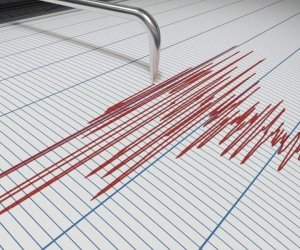
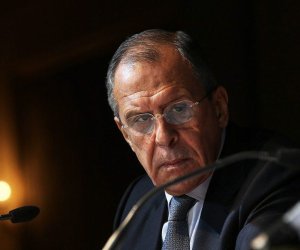
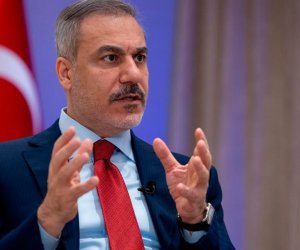
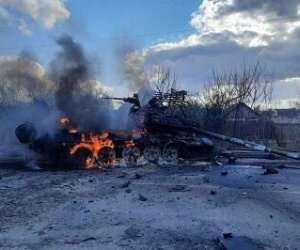

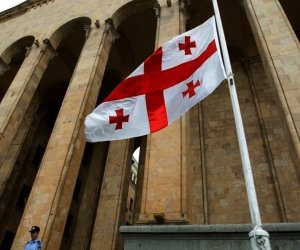





 Photo
Photo 



 Video
Video 

